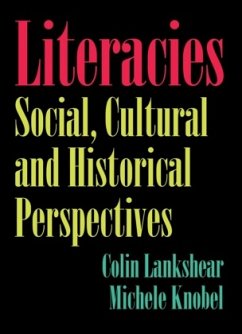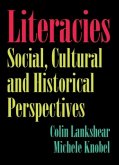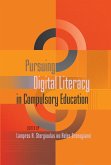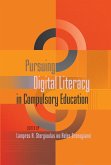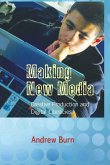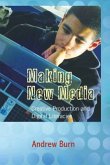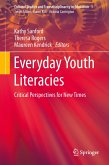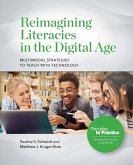This book presents sixteen essays in the new literacy studies tradition, written during the period 1985-2010. It covers a diverse range of themes with a particular emphasis on topics of cultural, political and historical interest. The collection includes both previously published and unpublished works, and is organized in four sections. Topics addressed in Part 1 include functional literacy, the politics of literacy in Nicaragua during the Sandinista period (1979-1990), the rise of the working class press in Britain, and reader response and the teacher as meaning-maker. Part 2 discusses critical literacy and active citizenship, literacy and empowerment, language and the new capitalism, varying ways of using computers in and out of school, and the way a low achieving student challenges conventional notions of literacy failure. Part 3 addresses the new literacy studies and the study of new literacies, the theory and practice of attention economics, and early developments in the useof ratings within online communities and social practices. The final part of the book takes up the theme of researching new literacies, discusses practices of digital remix, and provides a case study of becoming research literate within a context of DIY media creation.
«A collection of essays that brilliantly traces the thinking and writing of Colin Lankshear and Michele Knobel, two scholars known widely for their ability to immerse themselves in the social and cultural literacies that underpin much of what we know about contemporary teaching and learning with new communications technologies. Each essay, contextualized in what the authors term the 'text's biography', illustrates how changes over a period of twenty-five years in personal circumstances, space and place, and collegial influence, can lead to valuable grounded knowledge. Lankshear and Knobel's intuitions are riveting and of the kind that foreshadow where the field of literacy studies is headed.» (Donna E. Alvermann, University of Georgia)
«These essays represent the historical trek from the invention of the new literacy studies (the study of literacy in its social and cultural contexts) to the invention of the new literacies studies (the study of the social and cultural emergence of new digital literacies) by people who did not walk the path but helped to make it. If all other books were lost, we could begin to reconstruct the whole field from this book alone.» (James Paul Gee, Mary Lou Fulton Presidential Professor of Literacy Studies, Arizona State University)
«These essays represent the historical trek from the invention of the new literacy studies (the study of literacy in its social and cultural contexts) to the invention of the new literacies studies (the study of the social and cultural emergence of new digital literacies) by people who did not walk the path but helped to make it. If all other books were lost, we could begin to reconstruct the whole field from this book alone.» (James Paul Gee, Mary Lou Fulton Presidential Professor of Literacy Studies, Arizona State University)

